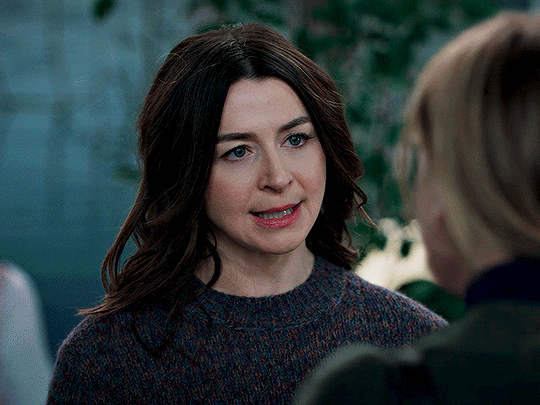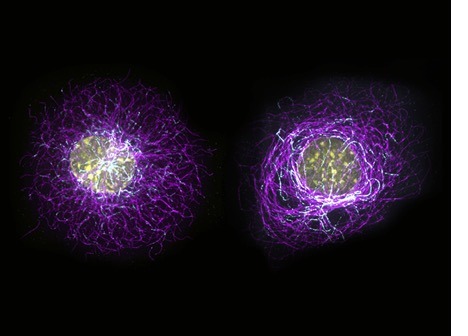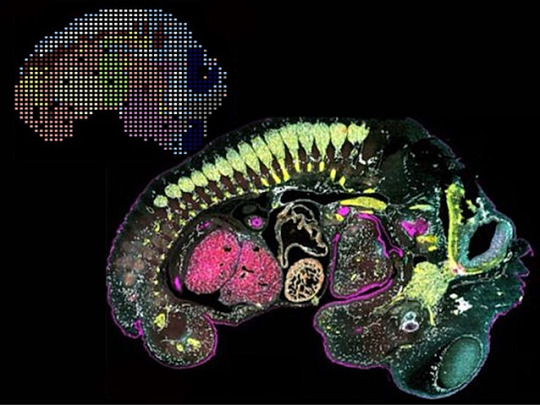#the Neurodegenerative Disease
Explore tagged Tumblr posts
Text
There’s a renewed call for a public inquiry into why so many New Brunswickers have come down with neurodegenerative symptoms and illnesses.
When an initial cluster of over 40 people presented with similar symptoms – muscle spasms, atrophy and progressive dementia – it was thought to be Creutzfeldt-Jakob disease, until they tested negative.
That’s when a Moncton-based neurologist thought they could be experiencing an unknown brain disease. The cluster was initially focused in the Moncton and Acadian Peninsula areas of the province.
But after over a year of confusing back-and-forth for patients and their families, the province of New Brunswick halted further investigation by its federal counterparts, saying there was an explanation for each patients’ illness.
This week, New York Times Magazine released an article that calls that into question, citing that neurologist Dr. Alier Marrero believes the number of people seeking help with similar symptoms is now over 400.
It has sparked Green Party MLA Megan Mitton to call for a public inquiry into what happened internally between the province and Ottawa, as well as further testing, including environmental, to try and find patients some answers.
Full article
Tagging: @allthecanadianpolitics
#new brunswick#public health#neurodegenerative disease#neurodegenerative illness#neurological illness#neurological disease#healthcare#health#illness#mine#new brunswick news#canadian news#cdnpoli
135 notes
·
View notes
Text
Finally reading the first draft IWTV pilot script and it explains the reason for a lingering nitpick of mine, Louis' line about Daniel getting on a plane in a pandemic with an "autoimmune disease," which Parkinson's isn't. It seemed like a pretty glaring oversight when the script was otherwise so meticulously researched. Anyway in the first draft he had MS; they changed the diagnosis but didn't change Louis' reply to reflect it. Etiological track changes!
#Thinking. About vampires#Theyre both progressive neurodegenerative diseases but Parkinson's isn't autoimmune
24 notes
·
View notes
Text
anyway SHOUT OUT to the GP I saw a while ago who gave me a neurological test, noted several concerning abnormalities, and concluded that I Was Just Like That
and when I pointed out that my last neurological test had been completely fine, meaning this was, in fact, a change we should investigate further, especially when combined with my symptoms
because I literally study this shit, work in the industry, and know what I am talking about
he shrugged, said he didn't know then, and suggested that I try supplements
#the specialist doc I saw yesterday could NOT BELIEVE the GP had not referred me earlier. and now everything is SIGNIFICANTLY worse lol#I had to get referred along a really weird pathway from my OTHER SPECIALIST who also couldn't believe the GP hadn't referred me earlier#if it turns out that I *do* have a neurodegenerative disease OR a(nother) spinal cord injury#and I missed my chance at an early diagnosis because of this motherfucker#I am going to show up at his house with a baseball bat#disability#the medical misadventures of bougie b. bitch
36 notes
·
View notes
Text




AMELIA SHEPHERD
— in Grey's Anatomy 20.01 - We've Only Just Begun
You told me to say whatever's in my- I'm sorry! It's making me think that maybe Meredith isn't insane.
#amelia shepherd#ameliashepherdedit#grey's anatomy#greysanatomyedit#greysedit#gaedit#caterina scorsone#laurealagifs#ga: 20x01#tvarchive#dailytvgifs#dailytvwomen#tvedit#tvgifs#ameliabyepisode#meredith and amelia are like let's cure every neurodegenerative disease ever#still continuously losing with this show but i've accepted it. kind of. will just keep giffing amelia
111 notes
·
View notes
Text
A spectrum of neurodegenerative diseases, including frontotemporal dementia (FTD), progressive supranuclear palsy (PSP), and corticobasal degeneration (CBD) are due to the accumulation of abnormal, misfolded tau proteins in the brain. A team of researchers has found potential ways to interrupt this process by targeting “sticky” sites along the long form of mutated tau, preventing the misfolding and spreading of the neurofibrillary tangles.
Continue Reading.
62 notes
·
View notes
Text
having a hypochondriac moment pray for me babes
#keep feeling like my muscles are weird? like some kind of tremors???#specifically if I turn my head one way sometimes it feels like my head is shaking a tiny bit#which -- I cannot stress this enough -- is probably normal#but it made me hyperaware now and I feel like I have some kind of tremor from neurodegenerative disease 😭#and like I can't walk normally and none of my muscles are normal#psychosomatic nonsense is... fun#and by fun I mean miserable 👍#Lu rambles#the hypochondriac blues
21 notes
·
View notes
Text

Indirect Influence
A criminal kingpin might orchestrate a whole network of mischief, but only directly instruct a small circle of trusted henchmen. New research on a protein in the cell cytoskeleton – the structural web within cells – reveals a similar pattern of influence. PFN1 is well known to be involved in the assembly of actin (filaments that play a key structural role in the cytoskeleton), but there were also signs of its involvement in microtubules – another cytoskeleton component. Silencing PFN1 caused changes in microtubule abundance and structure (pink and blue, right) compared to normal (left). Reducing actin activity had similar effects, and if actin was restored the microtubule changes reversed, suggesting that PFN1 is acting on microtubules predominantly via actin, rather than directly. Some of the microtubule changes that arose with PFN1 depleted match characteristics of neurodegenerative conditions such as Alzheimer’s disease, so unpicking the lines of power could present new treatment options.
Written by Anthony Lewis
Image from work by Bruno A. Cisterna and colleagues
Department of Neuroscience and Regenerative Medicine, Medical College of Georgia at Augusta University, Augusta, GA, USA
Image originally published with a Creative Commons Attribution 4.0 International (CC BY 4.0)
Published in Journal of Cell Biology, May 2024
You can also follow BPoD on Instagram, Twitter, Facebook and Bluesky
#science#biomedicine#immunofluorescence#biology#cytoskeleton#cells#actin#neuroscience#neurodegenerative diseases#alzheimer's
10 notes
·
View notes
Text
like nothing in the whole world to me is scarier than the concept of a neurodegenerative disease not even three sharks
8 notes
·
View notes
Note
Age gaps are unattractive to me because I just saw my mom see my dad have dementia and I don’t want to have to deal with that or be that for a partner. We better both be the same age and die at the same time or close to eachother…
incredibly extremely valid. sadly it's also possible for your same-age partner to get dementia late in life while you stay as sharp as ever. which terrifies me ngl. watched my great-aunt go through that when i was a child, i do NOT want it!!
#i wish we had a cure for every neurodegenerative disease ever amen#a while ago one of my mom's friends found out that her husband has huntington's disease#and his family KNEW there was the possibility and DIDN'T TELL THEM#like maybe they wouldn't have had biological children if they knew perhaps.......#one of the scariest fucking things i can think of
8 notes
·
View notes
Text
I LOVE PRIONS
#transmissible spongiform encephalopathies#creutzfeldt-jakob disease#fatal familial insomnia#neurodegenerative diseases#prions
5 notes
·
View notes
Text
Oh my fucking Gd they just booked me in for all-day memory testing next week, when it rains it POURS ajsjdjfjjfbff
#I'm at the combination multiple infections Maybe Fistula uhhhhhhhhh neurodegenerative disease#Dementia at the end of the world#Hemorrhoids at the end of the world#Me and S. An-sky and the angel of history down by the schoolyard#Had to reschedule PT but we move
23 notes
·
View notes
Text
ONE WEEK UNTIL THEY CAN (hopefully) TELL ME I DON'T HAVE ALS
I'm fully expecting that it won't be that - I'm just gonna need the big scoli surgery at this point because ummmmm it's developing rapidly. And I have fully lost my appetite along with 80% of strength in the fail-arm. And that is. Concerning. But as long as it ain't gonna keep getting worse and literally kill me, I can deal lolololololololol
#ANYWAY I AM NOT ALLOWED TO HAVE A FATAL NEURODEGENERATIVE DISEASE ON TOP OF ALL THE OTHER SHIT I GOT GOING ON#BECAUSE I STUDY THIS STUFF!!!!! THAT MEANS I'M PROTECTED!!!!!#BECAUSE THAT WOULD BE WAY TOO MUCH OF A COINCIDENCE!!!!!!!!#THIS IS WHAT I AM TELLING MYSELF!!!!!!!!!!!!!!!!!!!!!!!!!!!!!#IT WOULD BE A BRUTAL IRONY AND THEREFORE IT CAN'T HAPPEN!!!!!!!!!!!!!!!!!!!!!!!!!!!!!!!!!!!!!!!!!!!!!!!!!!!!!!!!!!!!!!!#....I really don't want scoli surgery tho lol. if only because I've done plenty in the OR irl and. YIKES YIKES YIKES YIKES YIKES#.........at least I'll be sent to a different hospital so I won't know the entire operating team and be forced to suffer the knowledge#that they have seen my entire ass while I'm unconscious#MY MATES DO NOT NEED TO GAZE UPON MY BOOTY. BOUNTEOUS (okay kinda scrawny) THOUGH IT MAY BE#the endless medical miseries of bougie
14 notes
·
View notes
Text
my brain proteins are so perfectly folded that my mere presence deters mad cow disease.
#daily affirmations#Brain#brain science#neuroscience#prions#prion disease#biology#biology memes#science#science memes#medical memes#Neurodegenerative-core#non reblog#stupid shit
3 notes
·
View notes
Note
If you're going to call out specific groups of people who aren't allowed to relate to your posts (instead of just, I don't know... ignoring people who don't respond to your posts the way you'd like?), can you at least get your facts straight? ADHD absolutely can cause severe memory issues. Real, actual, severe, debilitating memory problems. You're letting your (understandable!) frustration with certain people who do talk over other people with more severe disabilities turn into actual intracommunity ableism, and it sucks.
Lmao clearly you don't understand what "severe" means. Your ADHD does not cause you memory issues on par with anterograde amnesia from a moderate-severe brain injury. It does not cause you memory issues on par with dementia. You assume you can relate because you think you're the most disabledest ever and nobody can possibly suffer more than you, but you really can't. Some people are more disabled than you, that isn't an attack on you personally. It isn't ableism to tell you that something isn't about you, which it isn't.
I wouldn't have to add things like that to posts if people just like you didn't CONSTANTLY insist on making posts by people with more severe disabilities than you all about yourselves and derailing them because you find more severely disabled people invalidating. THAT'S ableism. You try dealing with that on almost every single post you make, no, every time you try to talk about your experiences, then you can talk to me about "just ignoring it". Sometimes things just aren't about you, learn to deal with it and respect other disabled people's boundaries, or leave the rest of us the fuck alone.
#'ADHD can cause memory issues as severe as neurodegenerative diseases and severe brain damage!!'#may just take the cake for stupidest thing I've heard on this site#good job demonstrating EXACTLY what we're all talking about#ableism#this ask was definitely sent by someone who is desperate to derail but didn't want to reblog the disclaimer lmao
3 notes
·
View notes
Text
We’ve moved past people misusing the word twink and people are now calling old Daniel Malloy a bear. Day ruined
5 notes
·
View notes
Text

Seen Two Ways
Genes and proteins are two sides of the same coin. Genes are sections of DNA that contain the instructions for producing proteins, which themselves play countless fundamental roles in the body – including regulating DNA expression. Researchers have techniques to measure gene expression or protein levels within cells and tissues, but a new approach marries the two to show a more rounded picture of a single specimen, such as the mouse embryo pictured. Clusters of gene expression patterns (top left) can be compared with the location and amounts of proteins (bottom, with colours indicating different proteins). Connecting gene activity and the precise location of protein function provides a level of insight that could answer important questions about health and disease, such as why some regions of tumours express genes differently, how protein imbalances in the brain are linked to neurodegenerative disorders, or how immune cells interact with tissues during inflammation.
Written by Anthony Lewis
Image from work by Archibald Enninful and Zhaojun Zhang, and colleagues
Department of Biomedical Engineering, Yale University, New Haven, CT, USA
Image contributed by the authors under a Creative Commons Attribution 4.0 International (CC BY 4.0) licence
Published in bioRxiv, February 2024 (not peer reviewed)
You can also follow BPoD on Instagram, Twitter, Facebook and Bluesky
#science#biomedicine#immunofluorescence#biology#cancer#genes#inflammation#neurodegenerative diseases
11 notes
·
View notes